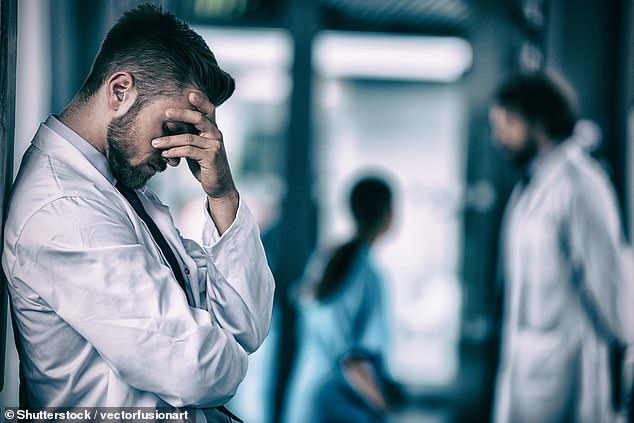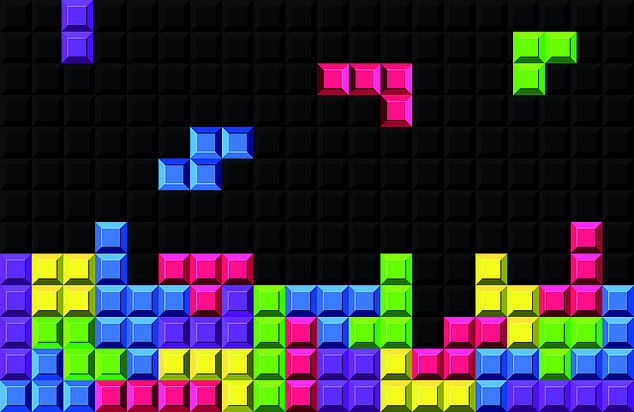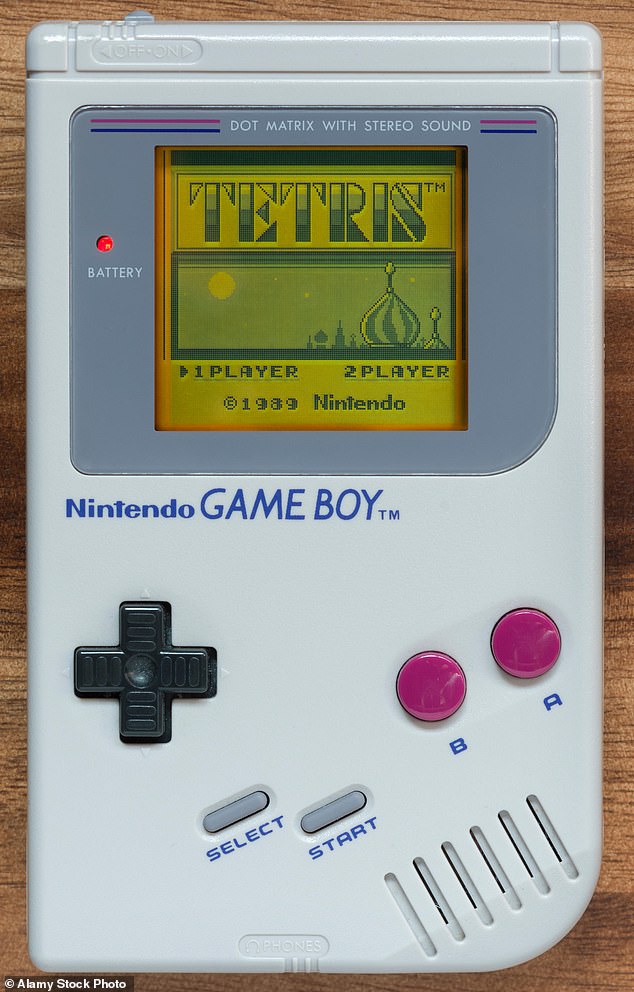The classic video game Tetris is being used to help NHS intensive care workers overcome the post-traumatic stress of dealing with Covid.
The popular game, which involves rapidly rotating falling blocks to fit together, has been found to activate an area of the brain that also deals with traumatic flashbacks.
By deliberately recalling a disturbing memory and then playing a few rounds of Tetris, patients can train their brain to prevent “intrusive thoughts” from taking over.
Those who tried the therapy went from having 14 traumatic flashbacks a week to just one.
Professor Emily Holmes, from Uppsala University in Sweden, said: “The goal of the intervention is to reduce the number of times intrusive thoughts come to mind.”
‘(Patients) deliberately remember one and learn to interact with it using “mental rotation” while playing Tetris.
Tetris rose to international fame with Nintendo’s Game Boy in 1989 and is now the best-selling video game of all time.

Stressed doctors suffered post-traumatic stress disorder (PTSD) after dealing with endless casualties during the Covid pandemic.

The famous block-stacking game was found to activate the same area of the brain as intrusive thoughts, so it could help sufferers of PTSD suppress their symptoms.
‘We were teaching people not only to play, but every time a block fell, to use their mind to rotate it.
‘That consumes a part of the brain that is also used for intrusive memories. So the game competes with the ability to restore that visual and sensory memory.
‘By bringing the memory to mind and then concentrating on the game, you are trying to compete with the unpleasant memory, so when it is recalled to the mind, it is recalled less vividly.
“If it’s less vivid and hyperactive, it’s less likely to be triggered in everyday life, so people have fewer of those intrusive memories.”
“You can change the number of times a memory comes back to your mind and prevent it from taking control over us.”
Tetris, designed by a Russian programmer in 1985, rose to international fame with the Nintendo Game Boy in 1989.
Since then, it has sold over 520 million copies worldwide across multiple platforms, making it the best-selling game of all time.
During the Covid pandemic, heroic frontline NHS staff treated a daily stream of seriously ill patients, many of whom died with terrible symptoms in isolation wards separated from their families.
Dr Julie Highfield, consultant clinical psychologist at Cardiff Critical Care and director of the Intensive Care Society, told Radio 4’s All in the Mind: “(Doctors) went out of their way to come together and get the job done, and quickly They felt overwhelmed.” They were exhausted, at the extreme of stress.
‘People didn’t have their usual ways of coping, their usual ways out. They needed to take time off and those who moved on were left with many difficult memories, complicated stories that they carry in their minds, that weigh them down and overwhelm them.
“People would have intrusive memories: emerging images, fragments of memories that appear in the mind, making it difficult to work and impacting their thinking.”
Feedback from NHS staff who received the therapy was overwhelmingly positive, with some saying it had virtually eliminated their memories of post-traumatic stress disorder (PTSD).
An anonymous doctor said, “You’re getting therapy but you don’t realize it.” It was like being back in the situation. He could hear the voices, he was once again surrounded by the stage. Then everything became images. Now it’s just a cloud, there’s nothing there.’
Another said: “I was very skeptical, I didn’t think it would do anything, but it actually helped reduce the frequency of the flashbacks.”
And another added: “I was very tearful, but now, if I’m tired, I feel more comfortable and happier, more emotionally controlled.”
Professor Homes said suppressing flashbacks can also “eliminate” other symptoms of post-traumatic stress disorder, such as sleep problems, irritability, nightmares and depression.
Patients followed six months after therapy continued to show improvements in their condition.

